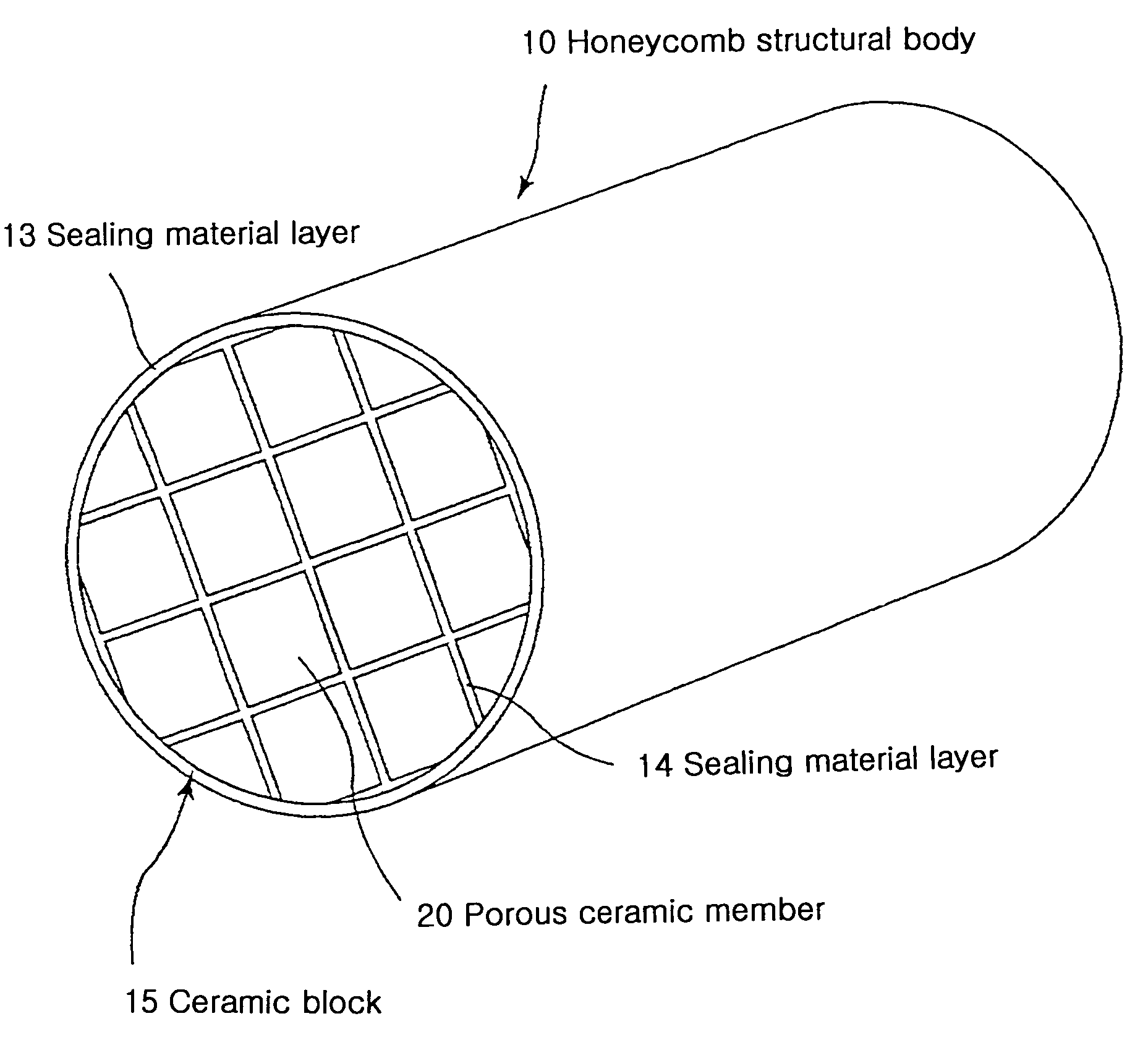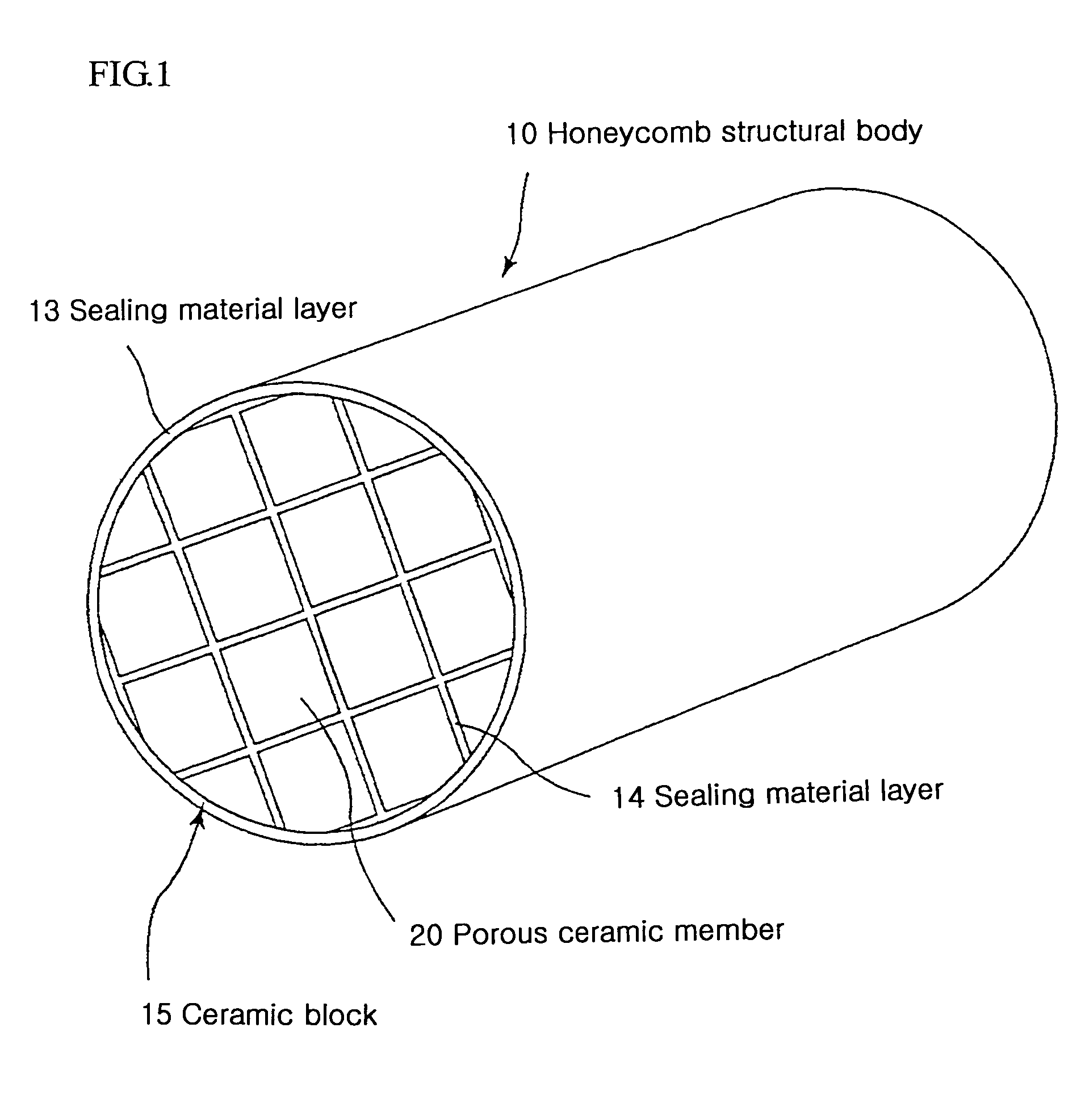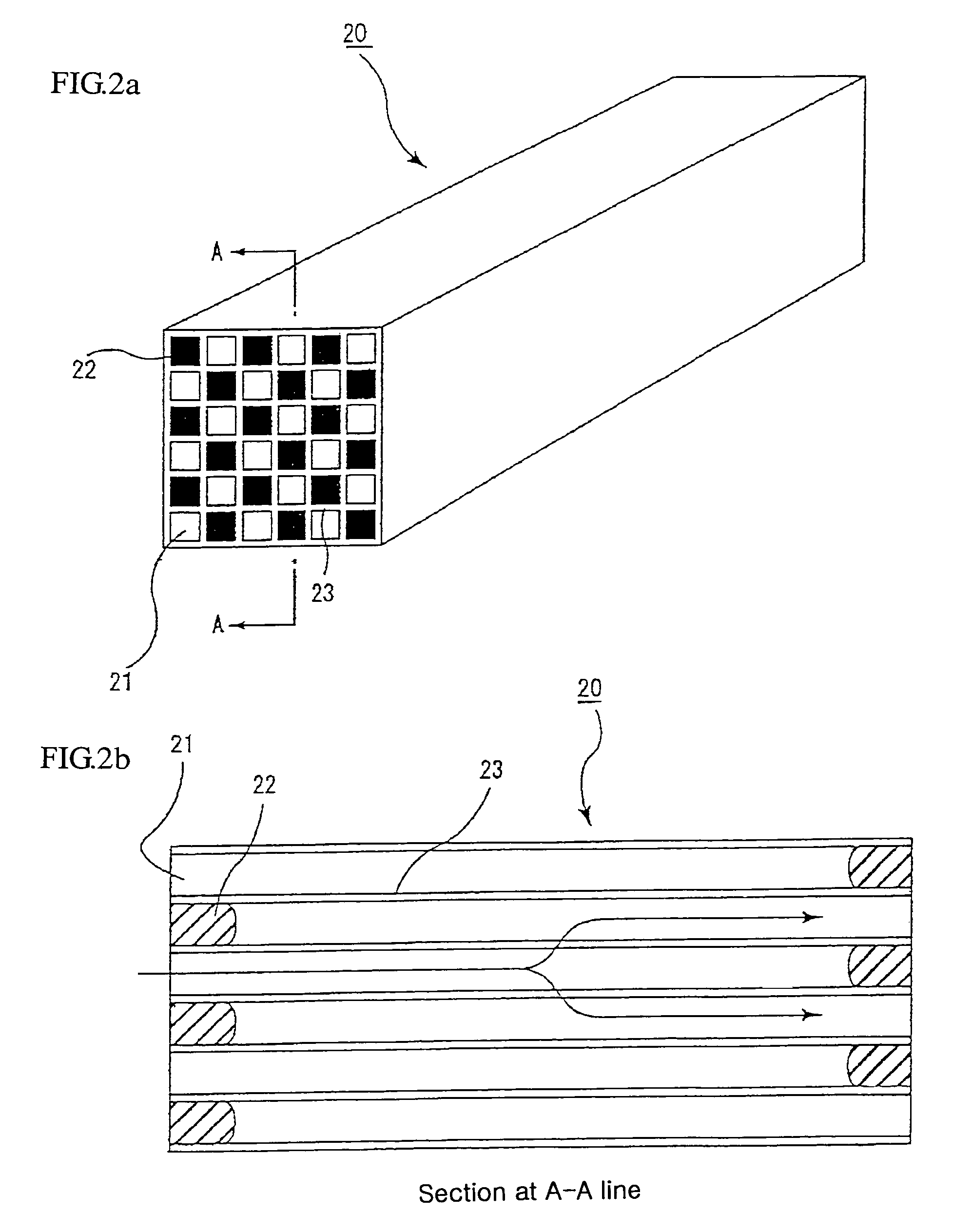Honeycomb structural body
a technology of honeycomb and structural body, applied in the direction of metal/metal-oxide/metal-hydroxide catalyst, machine/engine, chemical/physical process, etc., can solve the problems of obstructing ventilation, brittleness, environmental damage, etc., and achieve the effect of reducing the viscosity of raw material paste in a certain rang
- Summary
- Abstract
- Description
- Claims
- Application Information
AI Technical Summary
Benefits of technology
Problems solved by technology
Method used
Image
Examples
example 1
[0144](1) At first, a thin film of amorphous silicon is made by a chemical vapor deposition method (plasma CVD method) using silane (SiH4) and then the thin film is finely pulverized to obtain amorphous silicon powder having a mean particle size of 5 μm (half-width value of Si peak (2θ=about 28°) in an X-ray diffraction measured by the following method is 5.0°).
[0145]20 wt % of the amorphous silicon powder and 80 wt % of α-type silicon carbide powder having a mean particle size of 30 μm are wet-mixed, and to 100 parts by weight of the thus obtained mixed powder are added and kneaded 6 parts by weight of a binder (methyl cellulose), 2.4 parts by weight of a surfactant (oleic acid) and 24 parts by weight of water to prepare a raw material paste.
[0146]Next, the raw material paste is filled in an extruder and extruded at a rate of 10 cm / min to prepare a green shaped body having substantially the same shape as that of the porous ceramic member 30 shown in FIG. 2.
[0147]Then, the green sha...
example 2
[0153](1) A porous ceramic member is produced in the same manner as in Example 1(1) except that the firing condition in the bonding of silicon carbide particles with amorphous silicon is 1000° C. and 1 hour.[0154](2) A honeycomb structural body to be functioned as a honeycomb filter for purifying an exhaust gas is produced in the same manner as in Example 1(2) except for the use of the porous ceramic member produced in the above item (1).
example 3
[0155](1) A porous ceramic member is produced in the same manner as in Example 1(1) except that the firing condition after the bonding of silicon carbide particles with amorphous silicon is 1000° C. and 30 minutes.[0156](2) A honeycomb structural body to be functioned as a honeycomb filter for purifying an exhaust gas is produced in the same manner as in Example 1(2) except for the use of the porous ceramic member produced in the above item (1).
PUM
| Property | Measurement | Unit |
|---|---|---|
| 2θ | aaaaa | aaaaa |
| 2θ | aaaaa | aaaaa |
| 2θ | aaaaa | aaaaa |
Abstract
Description
Claims
Application Information
 Login to View More
Login to View More - R&D
- Intellectual Property
- Life Sciences
- Materials
- Tech Scout
- Unparalleled Data Quality
- Higher Quality Content
- 60% Fewer Hallucinations
Browse by: Latest US Patents, China's latest patents, Technical Efficacy Thesaurus, Application Domain, Technology Topic, Popular Technical Reports.
© 2025 PatSnap. All rights reserved.Legal|Privacy policy|Modern Slavery Act Transparency Statement|Sitemap|About US| Contact US: help@patsnap.com



